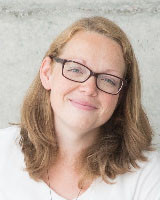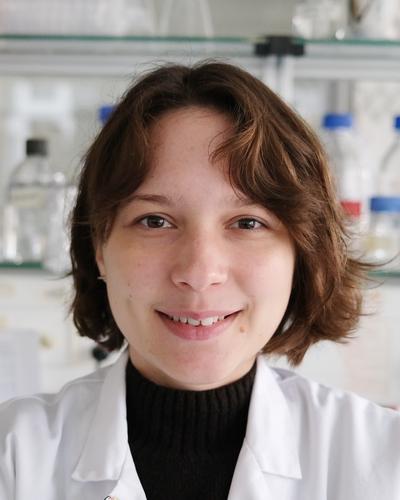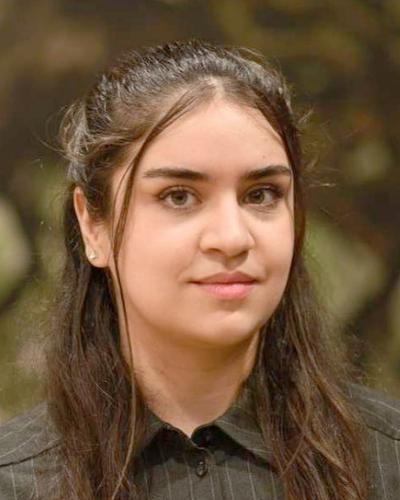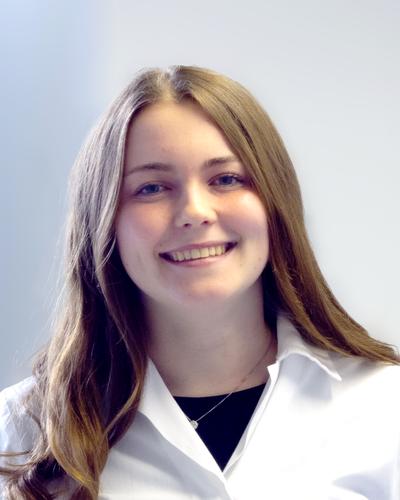iPSZürich

(forward to iPSZürich Lecture)
iPSZürich Organising committee
The iPSZürich network was founded in 2019 by Matt, Mel E., and Mel G., three young scientists who set out to connect researchers across institutes at the University of Zurich, including the Institute of Medical Genetics, the Department of Metabolism at the Children’s Hospital, and the Institute of Regenerative Medicine (IREM).
Over the years, many early-career researchers have contributed to shaping the network and have since moved on to new opportunities. Currently, the organising committee includes Melanie Generali, Nicole Ziak, Neguin Ranjbar, and Evelina Voloviceva. Recently, Louisa Charlotte Dury and Angelos Lika have joined the team. Together, they continue to foster cross-institutional collaboration and strengthen the community of young scientists in Zurich working with induced pluripotent stem cells (iPSC).

Melanie Generali, PhD
melanie.generali@uzh.ch
In the early 1960s, the key properties of stem cells were defined by Ernest McCulloch and James Till and presented a breakthrough that provided a steppingstone for future science. Melanie has discovered her deep interest in stem cells 6 years ago and it still continues and grows.
She studied biology first in Germany and later on in Switzerland. In 2014, she started her PhD at the Institute for Regenerative Medicine (IREM) of the University of Zurich. Her project involved the reprogramming of blood cells into iPSCs, followed by the differentiation into smooth muscle cells and endothelial cells. The final goal was the manufacturing of tissue-engineered vascular grafts (TEVG). During her postdoc she generated and purified clinical-grade iPSC-derived cardiomyocytes to regenerate ischemic heart tissue in close collaboration with the Center for iPS Cell Research and Application (CiRA, Kyoto, Japan). Since July 2021 she is Head of the iPSC Core Facility at IREM.
Being able to see how scientific innovations can be applied in the future is what really drives and motivates her

Evelina Voloviceva
evelina.voloviceva@usz.ch
Evelina Voloviceva is a PhD student in the Lipoprotein Group at the Institute of Clinical Chemistry (IKC) in Schlieren, Switzerland. Her research focuses on the composition and functions of the apolipoprotein E (apoE) particles in the brain in the context of Alzheimer’s disease.
Evelina earned her Master’s degree in Biochemistry from Jagiellonian University in Krakow (Poland). During this time, she completed a one-year research internship at the Oklahoma Medical Research Foundation (USA), where she discovered her interest in aging and neurodegenerative diseases.
In September 2022, Evelina started her PhD at UZH/USZ, where she is generating astrocytes, pericytes, and microglia from induced pluripotent stem cells (iPSCs). The ultimate goal of her work is investigating the unique protein and lipid compositions of apoE particles produced by each cell type and their roles in Alzheimer’s disease pathology.
Joining the iPSZürich team, Evelina is excited to contribute to the community of iPSC researchers, encourage collaborations and knowledge exchange.

Nicole Ziak
nicole.ziak@usz.ch
Nicole is a PhD student in the Hornemann lab in the Institute of Clinical Chemistry at the University Hospital Zurich (USZ). Before, she studied Pharmaceutical Sciences at ETH Zurich and did her master thesis in a lab for drug formulation and delivery.
Her research focuses on the generation of inducible neurons (iNeurons) from human iPSCs. The project involves comparing lipid profiles of healthy induced motor, sensory and cortical neurons to those from patients with serine palmitoyltransferase (SPT) mutations, linked to neuropathies as well as to amyotrophic lateral sclerosis (ALS). In both neurodegenerative diseases, the respective neuron types degenerate while the others types remain unaffected. Understanding their lipid profile differences is crucial, as lipids play significant roles in cellular function and membrane integrity. The findings could provide insights into disease mechanisms and potential therapeutic targets for managing these conditions.
By joining the iPSZurich team, Nicole wants to contribute to knowledge exchange within the iPSC community, supporting collaborations and innovations in research.

Neguin Ranjbar
neguin.ranjbar@uzh.ch
Neguin completed her Bachelor of Science in Cellular and Molecular Biology at Azad University, Science and Research Branch, in Tehran. Now, she is pursuing a master’s degree in Molecular Biotechnology and Bioinformatics at the University of Milan (Unimi), Italy. Currently, she is conducting her master’s thesis research at the University of Zurich (UZH) in the Institute for Regenerative Medicine, in the Sendoel lab, where she applies CRISPR technology to investigate the roles of translational regulation in early mammalian development. During this project, she was introduced to working with primary stem cells. Her research focuses on uncovering molecular mechanisms that govern developmental processes, with potential implications for regenerative medicine.
By joining the iPSZürich team, Neguin is eager to contribute to fostering a collaborative and innovative environment in iPSC research while building connections that bridge scientific progress within Switzerland and beyond.

Louisa Charlotte Dury
louisa.dury@kjpd.uzh.ch
Louisa is a PhD student in the Grünblatt group at the Department of Child and Adolescent Psychiatry and Psychotherapy in Schlieren, Switzerland. Her research investigates the role of astrocytes in ADHD pathophysiology using patient-derived iPSCs, focusing on metabolic, oxidative stress, and inflammatory dysregulations. Understanding astrocyte contributions may help uncover ADHD causes and inform new treatment approaches.
She first worked with iPSCs during her Master’s at the University of Innsbruck in the Edenhofer lab, modelling Mucopolysaccharidosis IIIB using 2D and 3D patient-specific iPSC models.
By joining iPSZürich, Louisa hopes to support collaboration and exchange within the iPSC research community.
Thank you to our alumni: Dr. Matthew Denley, Dr. Ambra Villani, Beata Vekeriotaite, Melanie Eschment, Clara Duré, David Taborsky, Vanessa Budny, Karan Ahuja, Angelos Lika
iPSZürich Lecture
The induced pluripotent stem cell (iPSC) lecture series, brings together early-career researchers (Undergraduate Students, PhD students and postdoctoral fellows) and experts working on exciting new innovations in the field. The main goal is to provide a forum to disseminate state-of-the art iPSC research, trigger free-ranging discussions and help to inspire ideas of current research projects in the field of iPSC technologies.